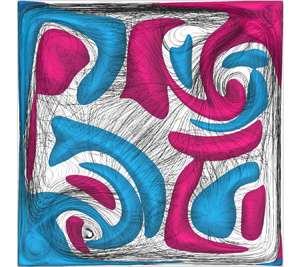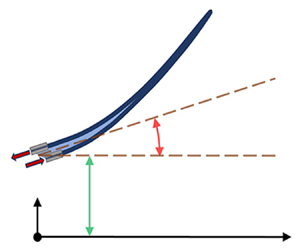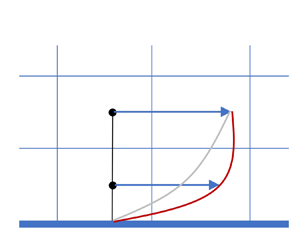Refine listing
Actions for selected content:
1418748 results in Open Access
Left ventricle hypertrophy and re-modeling in children with essential hypertension: does the race matter?
-
- Journal:
- Cardiology in the Young / Volume 34 / Issue 4 / April 2024
- Published online by Cambridge University Press:
- 16 November 2023, pp. 906-913
-
- Article
- Export citation
Significant influence of fluid viscoelasticity on flow dynamics past an oscillating cylinder
-
- Journal:
- Journal of Fluid Mechanics / Volume 975 / 25 November 2023
- Published online by Cambridge University Press:
- 16 November 2023, A26
-
- Article
- Export citation
Rethinking Global Value Chains and Corporate Social Responsibility by Peter Lund-Thomsen (Cheltenham: Edward Elgar Publishing, 2022). ISBN 978 1 83910 208 0
-
- Journal:
- Business and Human Rights Journal / Volume 8 / Issue 3 / October 2023
- Published online by Cambridge University Press:
- 16 November 2023, pp. 477-479
-
- Article
- Export citation
What Politicians Do Not Know Can Hurt You: The Effects of Information on Politicians’ Spending Decisions
-
- Journal:
- American Political Science Review / Volume 118 / Issue 3 / August 2024
- Published online by Cambridge University Press:
- 16 November 2023, pp. 1497-1517
- Print publication:
- August 2024
-
- Article
-
- You have access
- Open access
- HTML
- Export citation
Generalized divisor functions in arithmetic progressions: II
- Part of
-
- Journal:
- Proceedings of the Edinburgh Mathematical Society / Volume 67 / Issue 1 / February 2024
- Published online by Cambridge University Press:
- 16 November 2023, pp. 28-56
-
- Article
-
- You have access
- Open access
- HTML
- Export citation
Wall mode dynamics and transition to chaos in magnetoconvection with a vertical magnetic field
-
- Journal:
- Journal of Fluid Mechanics / Volume 975 / 25 November 2023
- Published online by Cambridge University Press:
- 16 November 2023, R2
-
- Article
- Export citation
Jet from a very large, axisymmetric, surface-gravity wave
-
- Journal:
- Journal of Fluid Mechanics / Volume 975 / 25 November 2023
- Published online by Cambridge University Press:
- 16 November 2023, A22
-
- Article
-
- You have access
- Open access
- HTML
- Export citation
Lindsey B. Green-Simms, Queer African Cinemas. Duke University Press, 2022, 250 pp.
-
- Journal:
- Cambridge Journal of Postcolonial Literary Inquiry / Volume 11 / Issue 1 / January 2024
- Published online by Cambridge University Press:
- 16 November 2023, pp. 120-121
-
- Article
- Export citation
Effects of antagonistic muscle actuation on the bilaminar structure of ray-finned fish in propulsion
-
- Journal:
- Journal of Fluid Mechanics / Volume 975 / 25 November 2023
- Published online by Cambridge University Press:
- 16 November 2023, A23
-
- Article
- Export citation
Forced oscillations of a cylinder in the flow of viscoelastic fluids
-
- Journal:
- Journal of Fluid Mechanics / Volume 975 / 25 November 2023
- Published online by Cambridge University Press:
- 16 November 2023, A28
-
- Article
- Export citation
Large cliques or cocliques in hypergraphs with forbidden order-size pairs
- Part of
-
- Journal:
- Combinatorics, Probability and Computing / Volume 33 / Issue 3 / May 2024
- Published online by Cambridge University Press:
- 16 November 2023, pp. 286-299
-
- Article
-
- You have access
- Open access
- HTML
- Export citation
Characterization of the complete mitochondrial genome of Acanthogyrus (Acanthosentis) bilaspurensis Chowhan, Gupta & Khera, 1987 (Eoacanthocephala: Quadrigyridae), the smallest mitochondrial genome in Acanthocephala, and its phylogenetic implications
-
- Journal:
- Journal of Helminthology / Volume 97 / 2023
- Published online by Cambridge University Press:
- 16 November 2023, e87
-
- Article
- Export citation
A POD-mode-augmented wall model and its applications to flows at non-equilibrium conditions
-
- Journal:
- Journal of Fluid Mechanics / Volume 975 / 25 November 2023
- Published online by Cambridge University Press:
- 16 November 2023, A24
-
- Article
- Export citation
A Less Bad Theory of the Procreation Asymmetry and the Non-Identity Problem
-
- Article
-
- You have access
- Open access
- HTML
- Export citation
Internal Borders and Population Geography in the Unification of Italy – CORRIGENDUM
-
- Journal:
- The Journal of Economic History / Volume 83 / Issue 4 / December 2023
- Published online by Cambridge University Press:
- 16 November 2023, p. 1266
- Print publication:
- December 2023
-
- Article
-
- You have access
- Open access
- HTML
- Export citation
Indicadores de poblamiento inicial en paisajes semidesérticos de la Pampa Occidental (Argentina)
-
- Journal:
- Latin American Antiquity / Volume 35 / Issue 4 / December 2024
- Published online by Cambridge University Press:
- 15 November 2023, pp. 965-982
- Print publication:
- December 2024
-
- Article
- Export citation
Fandom Culture as a Catalyst for Propaganda
-
- Journal:
- The China Quarterly / Volume 259 / September 2024
- Published online by Cambridge University Press:
- 15 November 2023, pp. 814-823
- Print publication:
- September 2024
-
- Article
- Export citation
DEM volume 89 issue 4 Cover and Back matter
-
- Journal:
- Journal of Demographic Economics / Volume 89 / Issue 4 / December 2023
- Published online by Cambridge University Press:
- 15 November 2023, pp. b1-b3
-
- Article
-
- You have access
- Export citation
Confidence in Probabilistic Risk Assessment
-
- Journal:
- Philosophy of Science / Volume 91 / Issue 3 / July 2024
- Published online by Cambridge University Press:
- 15 November 2023, pp. 702-720
- Print publication:
- July 2024
-
- Article
- Export citation










































